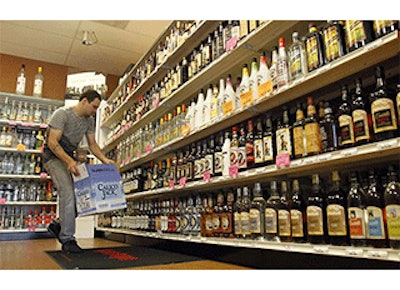
SALEM, Ore. (AP) — Grocers who sponsored ballot measures to end Oregon's state liquor monopoly have given up for this year, saying Wednesday that there's not enough time left for them to round up signatures.
The grocers prepared two versions of their proposed initiative with slightly different language, but they still haven't received approval to begin collecting signatures for the one they prefer. They would need 87,000 valid signatures on that measure by July 3 to qualify for the November ballot.
Initiative proponents said they will continue seeking privatization of liquor sales through the Legislature or the 2016 ballot.
"We still believe Oregonians are ready to end our state's Prohibition-era monopoly on liquor sales and allow Oregon consumers to buy liquor at qualified grocery and retail stores — just like consumers do in most other states," Lynn Gust, division president of Fred Meyer Stores, said in a statement.
The Oregon Liquor Control Commission buys liquor in bulk and distributes only to state-licensed stores, which sell the alcohol at a 104 percent markup. Except for a small amount to pay liquor store owners and cover the cost of the liquor control commission's operations, profits are passed on to local governments and the state general fund. The liquor control commission took in nearly $1 billion in revenue during the two-year budget cycle that ended last summer.
The grocers proposed a variety of ballot measures that differed slightly in their specifics but sought the same goal: allowing liquor sales in stores that already sell beer and wine and are at least 10,000 square feet. Existing liquor stores would have been allowed to stay open, and some smaller shops like wine specialty stores would have been able to sell liquor.
The Oregon Beer & Wine Distributors Association, which supports the existing system of liquor regulation and was prepared to help fund a campaign against the ballot measures, welcomed the decision not to pursue them.,
"This was a solution in search of a problem to benefit big grocers," Paul Romain and Danelle Romain, the group's lobbyists, said in a statement. "With it over we can turn our attention back to creating economic opportunities that help our craft distillers, brewers and wine growers continue to grow and succeed."






















